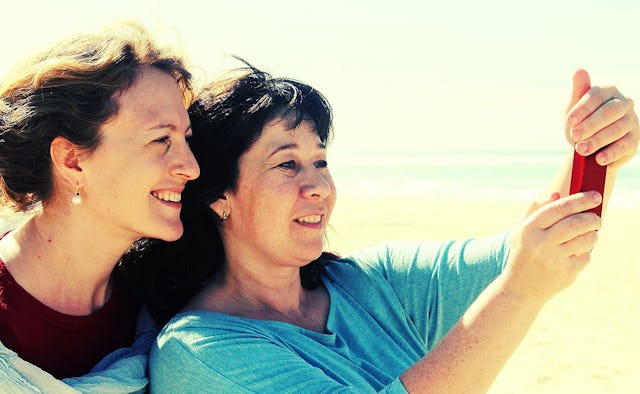The Meta-Friend

Now that I’m in my 40s, I have friends scattered all over the country. We maintain various levels of connection—mostly through Facebook, emails and occasional visits if we happen to be in town. I have a few friends from high school and college I struggle to visit, despite our diverse careers or complex child-rearing arrangements. My local friends range from single parents and casual gym buddies to community theater folk and couples with kids I’ve known for 20 years.
But I have this one friend who—within the first year I knew her—walked into my kitchen one day, looked into my eyes, and said in her deep, soothing tone, “I want to know if I’ve done something to upset you.” My eyes welled up before she finished her sentence, and I couldn’t look her back in the eyes while I answered.
I’d never had anyone be that direct or that concerned about my friendship before. I never had a friend with enough courage to approach me that way. In the past, I’d always been the one to chase down the source of the rifts in friendships—to the extent I had the nerve. And I never completely trusted the answers I received because no one ever cared enough to come to me seeking their own answers.
In many of my friendships, I’ve carried the weight of insecurity. I always felt like I was guessing, trying to figure out what was going on—despite whatever they were telling me—giving friends the benefit of the doubt, which is fine, but…always?
I remember when we were done talking that day, she said, “I think it’s so important in a friendship to be able to talk about the friendship itself.” And suddenly I fit into the room around me, and I could look her in the eye for the first time for more than a second.
The power of the vulnerability in handing yourself over to someone and saying, “I care about this relationship, and I see that it may be broken. I see that I may have done something to hurt you. Can you please tell me, so we can fix it?” That’s the only time in my life I can remember anyone caring enough, being strong enough, and being open enough to express those feelings to me.
And it carries forward. We don’t always need big dramatic scenes anymore to mop up the messes. Sometimes a quick exchange on the spin bike or even a few texts will do the trick. Of course, occasionally the big tearful moments spill over, particularly when there’s other stress in our lives built up behind the walls.
My friend—who’s also a writer—and I exchange ideas frequently, so I texted her that I planned to write an essay about our “meta-discussions” about being friends, unless she already had something like this in the works.
She had no idea what I was talking about.
She texted back, “I thought that was just called communicating.”
This article was originally published on